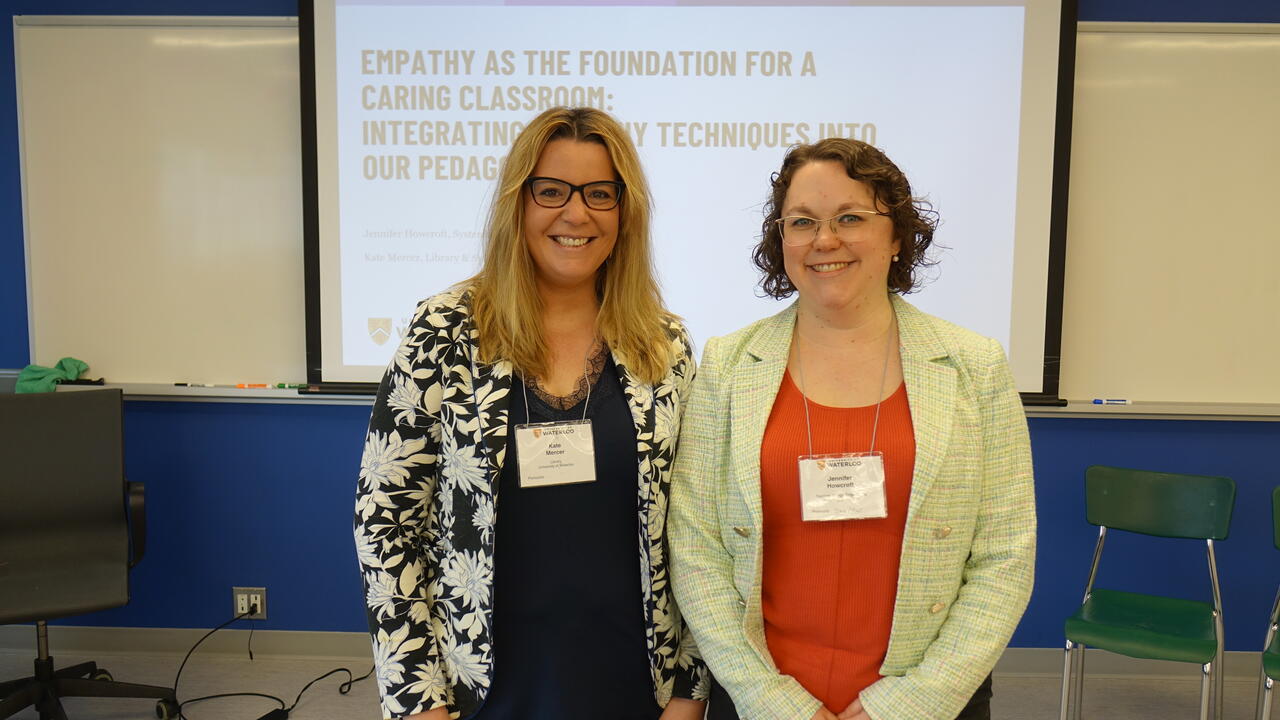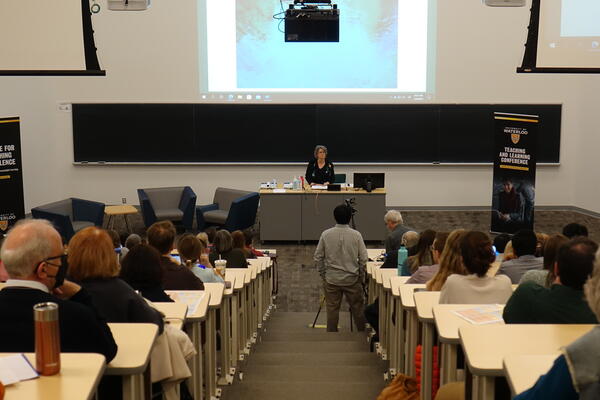
Empathy in the engineering classroom
Understanding student experience is a key to better learning outcomes, say engineering instructors

Understanding student experience is a key to better learning outcomes, say engineering instructors
By Jon Parsons University RelationsTeaching and learning in engineering and other STEM disciplines can sometimes seem to be impersonal, in the sense that the subject matter is highly technical, and the focus is often on demonstrating discrete competencies.
Yet for Dr. Jennifer Howcroft and Dr. Kate Mercer, seeing the world through the eyes of students and empathizing with them is an essential pedagogical technique.
Howcroft is a lecturer in the Department of Systems Design Engineering and Mercer is a librarian and sessional instructor who teaches in the Department of Systems Design Engineering.
At the recent University of Waterloo teaching and learning conference, Howcroft and Mercer hosted a session on “empathy as the foundation for a caring classroom,” which demonstrated practical techniques they use in their teaching.
“In a lot of STEM disciplines, there’s a focus on building technical skills,” Howcroft says. “I think there’s a lot of room to focus more on soft skills, like empathy, and to find ways to build these skills into teaching and learning. Empathy in the classroom can have a deep impact on students, not just in their academic life, but also their future professional and personal lives.”
In terms of how to deploy empathy in the classroom, Howcroft and Mercer say it requires a multifaceted approach. It is about empathy on the part of instructors toward students and the specific experiences they bring, but also about helping students to develop their own capacity for empathy not only for each other but also for the users they are designing for in their engineering courses.
It is important, for example, for students to be able to critically self-reflect on their own educational context and the experiences of their fellow students and instructors.
“Empathy is a two-way street,” Mercer says. “If we give empathy to our students, we not only receive it in return, but also demonstrate that it is an important skill to develop. Doing so helps establish a community of wellness and fosters an educational experience of kindness and care. Empathy absolutely is a natural skill that people have, but it can also be purposefully developed.”

Dr. Kate Mercer (l) and Dr. Jennifer Howcroft (r) presenting at the annual University of Waterloo teaching and learning conference.
As part of their session at the teaching and learning conference, Howcroft and Mercer shared activity sheets that instructors can use to better understand and empathize with students. Part of the activities involved creating “proto-personas,” which are a first step towards building a full persona, or fictitious representation of a student.
Using “proto-personas” or full personas can help instructors to think deeply about the diversity of students in their classrooms, understand the advantages a diverse student-body brings to the classroom, and consider how to best support academic success for a wide variety of students. This form of ideation can help instructors understand that many students will not automatically think as they think or see the world as they see it.
The well-attended session at the Centre for Teaching Excellence’s annual conference resonated with the overall conference theme on “teaching and learning with kindness and care.”

Read more
Waterloo hosts annual teaching and learning conference with special keynote on Indigenous pedagogies

Read more
Dr. Adam Ellis developing radical approach to teaching and learning

Read more
Waterloo’s institutional response to ChatGPT
The University of Waterloo acknowledges that much of our work takes place on the traditional territory of the Neutral, Anishinaabeg, and Haudenosaunee peoples. Our main campus is situated on the Haldimand Tract, the land granted to the Six Nations that includes six miles on each side of the Grand River. Our active work toward reconciliation takes place across our campuses through research, learning, teaching, and community building, and is co-ordinated within the Office of Indigenous Relations.